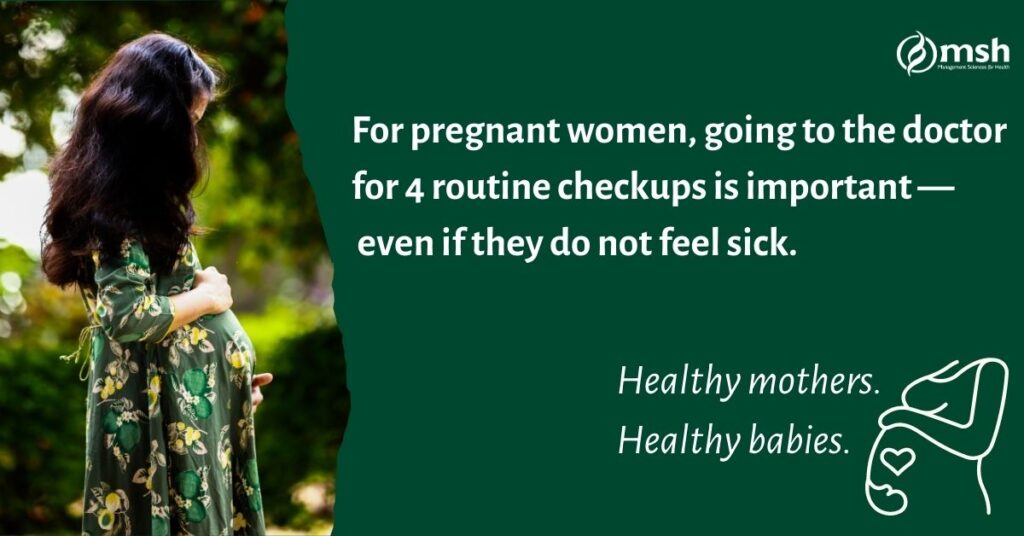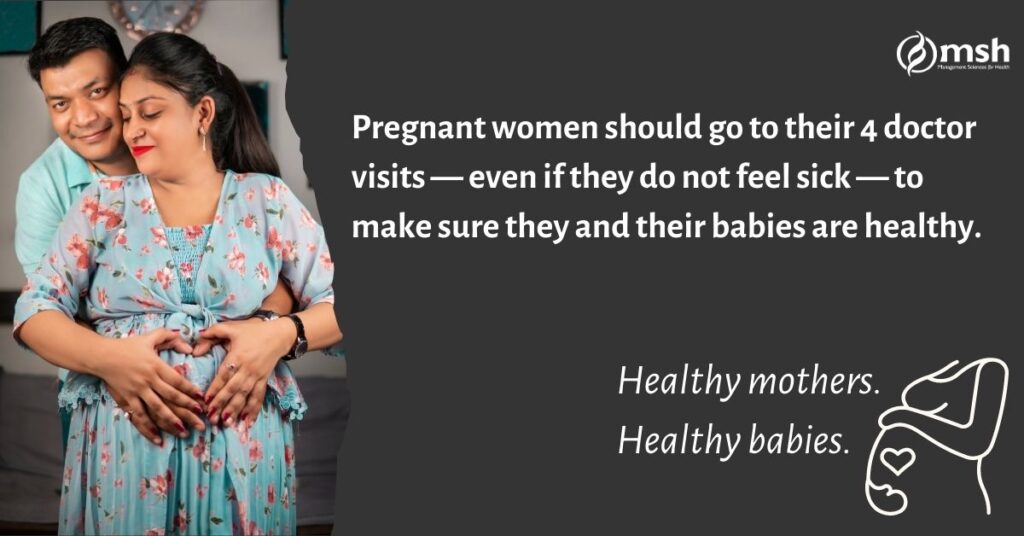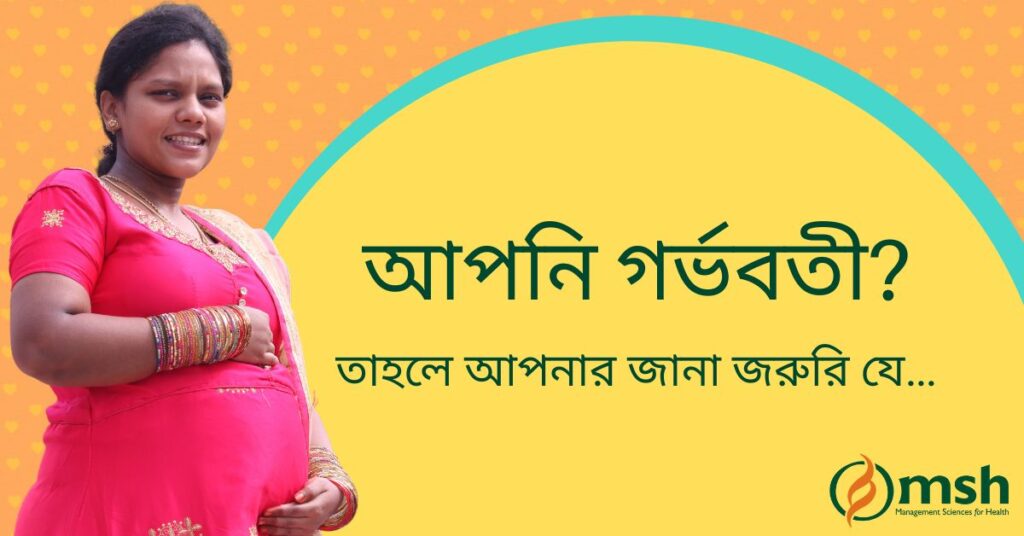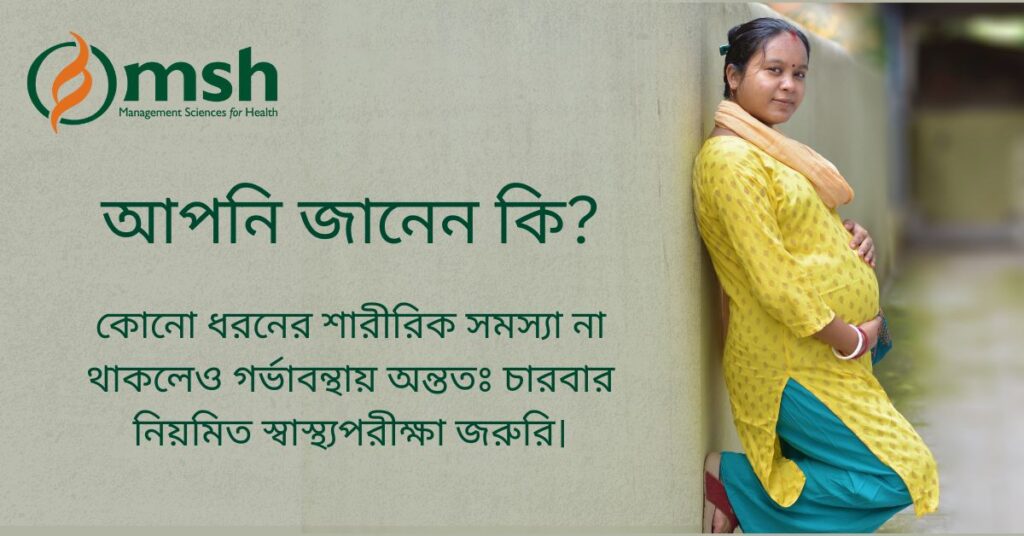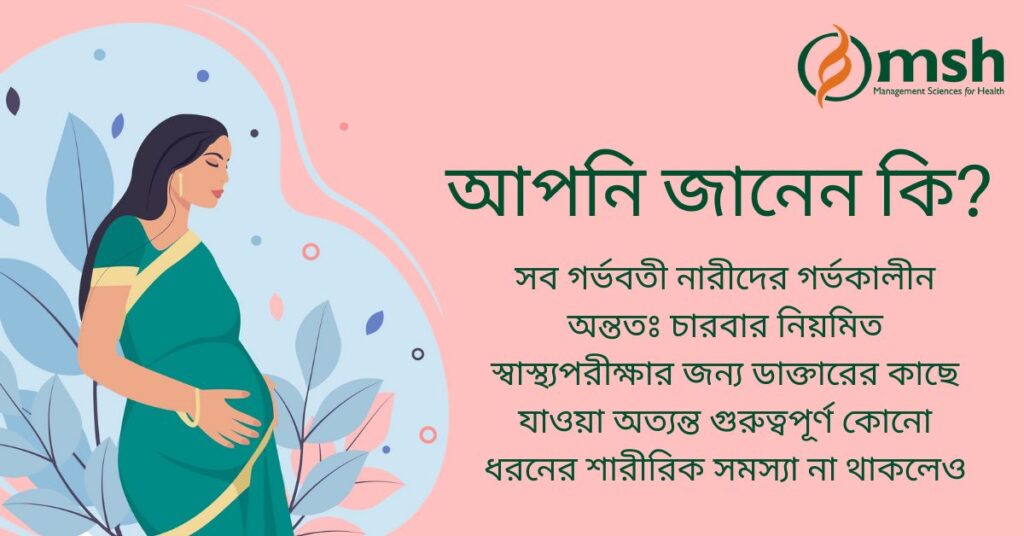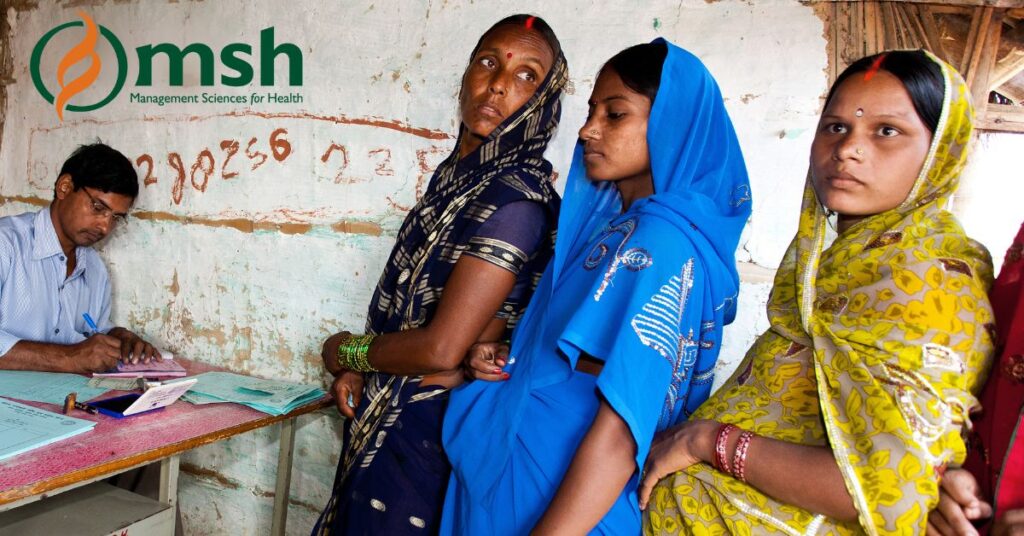Lessons from Bangladesh: Digital Messaging to Change Attitudes About Health
Lessons from Bangladesh: Digital Messaging to Change Attitudes About Health
Delivering maternal, newborn, and child health (MNCH) and family planning services in poor, underserved areas in Bangladesh is complex. Because of deeply entrenched gender inequities and very low levels of reproductive health knowledge and awareness, among other challenges, less than 3% of women and newborns in these areas receive all essential MNCH services to keep them safe and healthy.
In Bangladesh, the MSH-led Healthy Women, Healthy Families project works to provide services that will improve the quality, acceptability, and accessibility of care for young women and children in Gazipur and Tongi districts, near the capital city of Dhaka. Much of this work entails increasing access to and uptake of prenatal care, especially for young and first-time mothers, who tend to exhibit limited awareness about their reproductive health and often lack agency to make decisions about family planning and accessing health services.
We wondered if efforts in the digital space could complement our efforts on the ground to reach these vulnerable groups with important information about health. In partnership with Meta, we set our sights on reaching young women and men in Bangladesh’s Dhaka Division with messages about the importance of seeking prenatal care during pregnancy.
- MSH partnered with Meta to explore how we could, through ad campaigns on their platforms, reach young people in Bangladesh with messaging about the importance of attending prenatal checkups during pregnancy.
- Through our campaigns, we targeted women and men between the ages of 18-24 living in Dhaka Division, which includes poor, underserved districts where uptake of prenatal care remains alarmingly low due to multiple economic, social, and systemic barriers.
- After better adapting our campaign to the local context, it is statistically likely that an additional 764,000 people agree that it is important to seek prenatal care to keep women healthy during pregnancy.
Developing the Campaign
We developed an awareness-raising campaign with one overarching message: Going to the doctor for checkups during pregnancy is important to help keep mothers and babies healthy, even if the expectant mother does not feel sick. We identified our target audiences as women and men between the ages of 18 and 24–hoping to capture current or prospective first-time expectant parents–in Dhaka Division, which includes our project implementation areas of Gazipur and Tongi.
Examples of two ads run during Phase I of the campaign, targeting men and women with messaging about the importance of going to the doctor during pregnancy, even if a pregnant woman does not feel sick:
Implementing and Iterating
Phase I of the campaign ran on Meta platforms from August 24 through September 22, 2022, reaching nearly 13.3 million users and generating nearly 42 million impressions. Although reach and impressions were high, preliminary results of our brand lift study, which aimed to measure how the campaign impacted our target audience’s awareness of the importance of prenatal care, indicated that our ads were not resonating, and we had a big hunch as to why. We knew we had to make some essential changes to improve the campaign’s performance, so we went back to the drawing board with our project team in Bangladesh to improve our ads and hopefully obtain better results in Phase II.
First, we simplified our messages and gave them a spin to make them more engaging, incorporating more “Did You Know”-style questions to keep our audience interested in learning more about our message. Next, we worked with our team to translate these messages to Bangla, a key step excluded during Phase 1 because of time constraints to meet the campaign launch date. We also refreshed our creatives to include brighter colors, as well as imagery of medical professionals as trusted messengers and women wearing a broader variety of traditional dress to better reflect the tendencies in our target communities. All told, we developed five new ads–a mix of static images and simple animations–to test in Phase II.
Examples of ads that we ran during Phase II of the campaign. This time, we incorporated more vibrant colors, more diverse imagery, and text translated into Bangla:
These small changes proved to be hugely impactful in Phase II of our campaign, which ran from November 3 through December 2. This time, we reached more than 13.6 million users and generated almost 48 million impressions–similar to the achievements of Phase I–but the results of the brand lift study improved tremendously. Based on the 13.6 million people reached, it is statistically likely that an additional 468,000 people expressed the importance of going to the doctor for regular checkups during pregnancy, regardless of whether the expectant mother feels sick, after seeing the ads. Similarly, of the 13.6 million people, an additional 312,000 people agreed a woman should go to the doctor at least 4 times as recommended, even if she isn’t feeling sick.
The major turnaround we observed in our brand lift study results after iterating our campaign ads drives home the importance of localizing our campaign’s message. After incorporating a wider array of inclusive images and translating the ads to the local language, the campaign had a statistically significant impact on our audience’s awareness of our message.
Looking Ahead
We know that changing people’s knowledge, attitudes, and behavior around health is complicated, and it takes much more time and effort than can be captured in one short-term social media ad campaign. However, this experience has taught MSH many lessons about the value of online messaging in moving the needle on increasing people’s awareness of important health topics. We look forward to continued exploration of how best to harness our digital channels to effect lasting change, in Bangladesh and beyond, on the lives and health of the people we serve.
